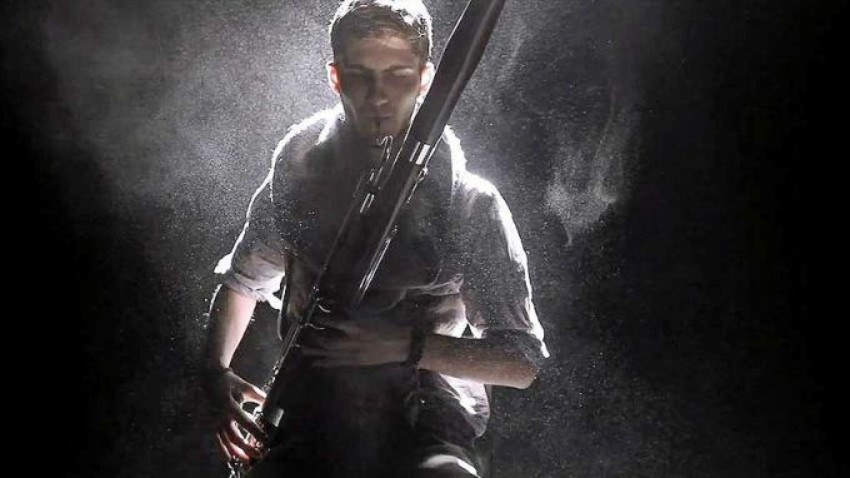What does it take to do a festival in times when travel is practically impossible and social distancing a must? “Experience and creativity, but you also have to take a big risk,” is the brief answer. Shortening distances using technologies – but without harming the creative spirit – this is the task the organizers of the 7th edition of the 180 Degrees experimental art festival have set themselves.
“It has always been our aim to eliminate the barriers between audience and artists,” says Alexander Hadjiev, 180 Degrees artistic director. “This year, in view of the Covid-19 situation, we shall offer a digital version of the festival, which will bring audiences even closer to the artists and their private space. In many cases the artists will be communicating from their own homes and we shall be able to see where they live. With this digital edition, the festival will also open up to audiences anywhere in the world, and it is all going to happen on a grander scale. The main challenge facing artists, who are accustomed to physical, live communication, is whether they will be capable of online collaboration. That is the reason why one of the festival’s themes will be – is there an alternative to art, and can it exist remotely?”

Only the opening and the closing of the festival will take place in front of an audience. The opening is tonight, 3 July, at Goethe-Institut in Sofia, with the participation of violinist Dora Dimitrova, visual artist Mihaela Dobreva, and dancer Stanislav Genadiev, and the closing will be a month later in Berlin, with a concert by Hyper Duo from Switzerland – a pianist and a percussionist with a blend of strange sounds, video performances and installations. In-between, audiences will be able to follow, live, at www.180-degrees.org, how the artists, from different points on the planet, divided into 6 teams, will exchange ideas and see them turn primordial chaos into harmony.
But is there a real alternative to live art – on stage, before the eyes of an audience?
“Of course the effect is lost – especially in our form of art – interdisciplinary, performance, contemporary music,” Alexander Hadjiev says. “It is something to be experienced live because it is connected with space, with the surroundings, with the moment. But I take a positive view and I believe that there are things more creative than streaming a concert in your own living room. Taking advantage of our artistic experience and all of this advanced technology we shall do our best to offer the public interesting creative endeavours.”
Online participation from Sofia, Geneva and Brussels, musicians, composers, choreographers, film directors and visual artists from 10 countries on three continents, a silent short film contest – and all this brought together by the code word Horos (from the Ancient Greek χῶρος), the meaning of which the artists will interpret through their art.
“The artists form small teams, each one of them comes from a different country and a different sphere of art, and this will mean exchanging experience, seeking out new things and evolving. In point of fact what we are trying to do is recreate, in our own day, what was happening a century ago in the “crazy” years between the two world wars. After all, we are living in the 20s, though not of the 20th but of the 21st century.”
The artists do not necessarily have to create a digital performance. They could just come up with an idea of a future project.
“It might not work out at all because that too is part of the artistic process – but it sometimes happens that something terrific will start out with failure,” the festival’s artistic director says in conclusion.
On 12 November at 5:30 p.m., Cardinal Pierbattista Pizzaballa, Latin Patriarch of Jerusalem, will give a lecture in the Marin Drinov Hall of the Bulgarian Academy of Sciences, at the invitation of the corresponding member of the Pontifical Committee for..
To mark the 65th anniversary of the Cuban animation studio Instituto Cubano del Arte e Industria Cinematográficos (ICAIC), Bulgarian director Andrey Hadjivasilev conducted a film workshop with students in Havana, the Bulgarian Embassy in Havana..
On this day five years ago (in 2020), a memorial plaque dedicated to the world-renowned Bulgarian bass Nicolai Ghiaurov (1929–2004) was unveiled in Modena. It was in this Italian city that the celebrated opera singer lived and worked from 1981 until his..
The Vladigerov brothers will provide a live musical accompaniment to a silent film at Vienna’s Metro Kulturhaus cinema , marking their second time taking..
The film “Made in EU” by director Stefan Komandarev won the Audience Grand Prize at the 63rd Gijón International Film Festival in..
The short animated film "Life with an Idiot" by Theodore Ushev won the best film award at the Beijing International Short Film..

+359 2 9336 661
